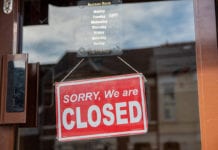The recent High Court decision on business interruption insurance is of ‘existential importance’ to businesses

LAST week the High Court published a lengthy judgment picking over the wording of some insurance policies.
While undramatic, this document is of existential importance to thousands of businesses in the hospitality sector and elsewhere.
The Financial Conduct Authority (FCA) brought this test case in response to a wide-spread perception that the insurance industry was failing to honour its obligations at the worst possible time.
Thousands of businesses had purchased business interruption (BI) cover to insure themselves against unforeseen events which might interrupt trading and policyholders naturally expected their insurers to compensate them (up to the relevant policy limits) for revenue lost when they were shut down.
All too often the response of insurers was to refuse cover, stating that they did not offer cover for pandemics and that the policy was only designed to compensate the policyholder for events happening specifically to his or her business or in the immediate area.
There is some logic to the insurance industry’s position.
Insurance is all about pooling risk: all policyholders pay a small amount to ensure that when a few are unlucky they can receive a much larger amount in compensation. The concept does not really work if we all suffer a big loss at the same time and the insurance industry is not rich enough to underwrite the whole economy.
It seems likely therefore that if one had asked insurers at the time whether they intended to provide cover for a nationwide lockdown they would have said they did not.
However, what matters is not what was inside the insurer’s head (or indeed that of the policyholder) when the policy was drawn up, but what the policy actually says.
The insurers could easily have stated clearly in the policy that they did not provide cover for the effects of epidemics. The policies in question did not do so, so it was left to the court to determine how these policies operate in response to the pandemic and the lockdown.
Broadly speaking, the result is a triumph for policyholders and a defeat for the insurers. There were two main issues covered in the case: Does the policy provide cover at all? If it does provide cover, how is the lost revenue calculated?
BI claims are unusual because they try to put policyholders in the position they would have been in if their businesses had not closed.
This requires the court to assess what the lost period of trading would have looked like but for the problem which caused the closure.
What if the revenue that would have been earned in that period would have been much lower than last year because of the pandemic? Should the business be compensated for revenue it would not in fact ever have earned?
The court found that the answer to both questions was to be found in the words of each policy. The court agreed with the FCA that COVID-19 was effectively present throughout the UK and thus counted as, for instance, “a notifiable disease within X miles of the premises”. The policies were not generally interpreted to mean that the disease had to occur only within X miles of the premises; nor did the local disease have to be the sole cause of the lockdown.
Once the court had uncoupled the local event from the shutdown in this way it was able to find that most of the policies did provide cover.
The court laid down no overriding principle, so anyone sitting on a BI claim will have to review the judgment and their policy with care.
An appeal (perhaps straight to the Supreme Court in the interests of speed) seems likely given the impact of this decision on the insurance market, so this may not be finally resolved for some time.
In the meantime, the FCA has urged insurers to contact policyholders whose claims are affected by the decision.
Anyone with a claim or potential should consider the position carefully. Such consideration may involve a close reading of this lengthy judgment and, even then, the position is likely often to be open to interpretation.
Katie Chandler and Julian Randall are partners at legal firm Taylor Wessing.





















